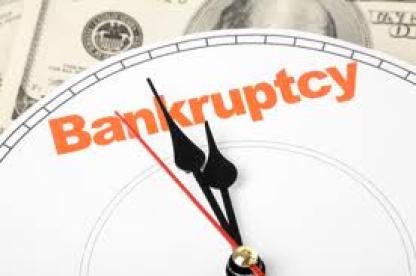In a November 17, 2016 ruling likely to impact ongoing debt restructurings, pending bankruptcy proceedings and negotiations of new debt issuances, the Third Circuit recently overturned refusals by both the Delaware bankruptcy court and district court to enforce “make-whole” payments from Energy Futures Holding Company LLC and EFIH Finance Inc. (collectively, “EFIH”) to rule that the relevant indenture provisions supported the payments. The case was remanded to the bankruptcy court for further proceedings.
The facts are not in dispute, and fairly straightforward. In 2010, EFIH borrowed approximately $4billion by issuing notes with 10 percent interest rate and secured by first priority liens on its assets. The indenture governing the note issuance provided, in pertinent part, that at “any time prior to December 1, 2015, [EFIH] may redeem all or a part of the Notes at a redemption price equal to 100 percent of the principal amount of the Notes redeemed plus the Applicable Premium… and accrued and unpaid interest”. “Applicable Premium” under the terms of the indenture is the make-whole payment calculation, which was intended to compensate the bondholders in the event of an early redemption for interest they would have earned had the notes not been redeemed early, and such premium stepped down after December 1, 2015, at intervals thereafter until the last two years of the 10-year tenor of the notes, at which point no premium would be due at early redemption. Indentures routinely contain such provisions to protect noteholders against subsequent interest rate drops and the corresponding loss in the bargained for interest payments should issuers refinance to take advantage of lower cost financings. The indenture for the first lien notes also contained a fairly typical acceleration provision, that upon the filing by EFIH of a bankruptcy, “all outstanding Notes….become due and payable immediately.”
In 2011 and again in 2012, EFIH borrowed additional money pursuant to notes issuances secured by second-priority liens on its assets and pursuant to indentures containing substantially similar provisions regarding the make-whole amount and the acceleration of the debt upon bankruptcy, although the step down in the make-whole determination were staged to correspond to the later issuance dates and the acceleration language also expressly referenced the payment of “premium, if any… and any other monetary obligations” on the notes, in addition to the reference to accrued and unpaid interest that would become due at acceleration. The additional language in the acceleration provision of the second lien indenture was ultimately unimportant to the court’s ruling.
Several years later, interest rates dropped and the company sought to refinance the notes. According to an 8-K filing by EFIH six months prior to its chapter 11 filing, EFIH disclosed its proposal to file for bankruptcy and to refinance the notes without paying any make-whole and settle with certain noteholders. It filed for chapter 11 protection in April 2014 and various parties sought declaration to rescind the acceleration and to obtain relief from automatic stay in order to decelerate. In June 2014, with the bankruptcy court’s approval, EFIH repaid the first lien notes with proceeds from new debt issued at a much lower interest rate of 4.25 percent, resulting in cost savings of $13 million of interest expense per month. It did not pay the make-whole amount, calculated to be approximately $430 million at the time of repayment. A year later, EFIH refinanced a portion of the second lien notes, also without paying the make-whole amount and with the bankruptcy court’s permission.
Both the bankruptcy court and the district court upheld the debtor’s view that no make-whole amount was due because the indentures for both the first lien notes and the second lien notes provided that upon a chapter 11 filing, the debt was accelerated and the debtor was obligated to repay the full debt amount and interest then due. The courts concluded that no make-whole payment was due because payment of debt after its accelerated maturity date is not a “prepayment” and the acceleration provision itself did not contain an expressed statement that the make-whole was due after acceleration.
In so holding, both courts followed recent precedent requiring the clear intent of the parties regarding treatment of make-whole amounts after debt acceleration in the debt documentation’s acceleration section. In School Specialty (In Re: School Specialty, Inc. 2013 WL 1838513 Bankr.D.Del 2013), a make-whole payment after acceleration was upheld because the debt documentation contained specific provisions calculating the make-whole amount, including detailed language in the default/acceleration clause that the make-whole would be due upon acceleration. The Second Circuit in In re: AMR Corp., 730 F.3d 88 (2d Cir. 2013), upheld the lack of a make-whole payment after acceleration where the indenture expressly stated that upon acceleration certain other amounts, namely and specifically, the make-whole payments, would not be due.
The Third Circuit reviewed the entirety of the two provisions, the make-whole provision upon redemption in section 3.07 of the indentures and the acceleration provision in section 6.02 of the indentures, and found them not inconsistent. It concluded that nothing in the acceleration provision negated the requirement for the make-whole payment because acceleration had no bearing on whether the make-whole payment was due at that time; if the optional redemption occurred prior to the stated date, then the make-whole payment was due. Of particular importance to the court was that the redemption section clearly stated that upon any voluntary repayment, a “redemption”, the make-whole amount would be due if there was repayment before the specified date. The court distinguished between a “prepayment”, which courts have viewed as being impossible once the maturity date is accelerated after a chapter 11 filing, and a redemption, which simply means repayment [citing several New York and federal court cases, including Chesapeake Energy Corp. v. Bank of N.Y. Mellon, 773 F.3d 110, 116 (2d Cir. 2014) (to “redeem” is to “repay[]. . .a debt security. . . at or before maturity”).
It also noted that the redemption was voluntary in that the debtor had the option per its plan of reorganization to reinstate the original maturity date under the Bankruptcy Code, rather than repay the notes; the noteholders did not wish to be repaid and the redemption was made over noteholder objections during the chapter 11 process. The court highlighted —twice — that in the debtor’s own words, the refinancing was being undertaken to cut its interest expense, the very reason make-whole provisions exist.
As a result of the Third Circuit’s ruling, parties are on notice that make-whole provisions will continue to receive close scrutiny in chapter 11 cases and that the precise language regarding the circumstances under which these payments become due matters significantly. Clear language in debt documentation providing for the payment of make-whole amounts after acceleration or upon “redemption” prior to a date certain is critical in demonstrating the parties’ intent that make-whole amounts are due if the debt is repaid after acceleration.




 i
i

